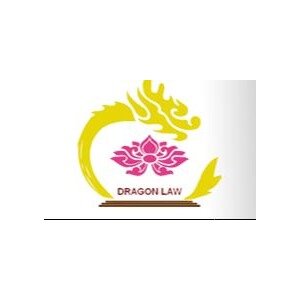Best Natural Resources Lawyers in Haiphong
Share your needs with us, get contacted by law firms.
Free. Takes 2 min.
List of the best lawyers in Haiphong, Vietnam
About Natural Resources Law in Haiphong, Vietnam
Haiphong, situated in the northeastern region of Vietnam, is endowed with a rich variety of natural resources, including minerals, forests, and aquatic resources. The city's proximity to both the Red River and Tonkin Gulf enhances its significance in terms of marine resources and biodiversity. Natural Resources Law in Haiphong is designed to regulate the utilization, management, and protection of these resources, ensuring sustainable development and environmental protection. Local legislation reflects Vietnam's broader national policies on sustainable development, and compliance is critical for both individuals and businesses operating in the area.
Why You May Need a Lawyer
Engaging with natural resources in Haiphong can involve complex legal situations that require expert guidance. Common scenarios where legal advice is crucial include:
- Land Use and Management: Determining and acquiring rights for land use, especially for forestry or mining activities.
- Environmental Compliance: Meeting the environmental regulations set forth by local and national authorities.
- Licensing and Permits: Securing necessary licenses for resource extraction or project development.
- Dispute Resolution: Handling conflicts related to natural resource usage, such as disputes over land rights or environmental grievances.
- Contract Negotiation and Drafting: Ensuring contracts related to resource use, such as supply agreements or joint ventures, are legally sound and protect your interests.
Local Laws Overview
Haiphong's legal framework for natural resource management is primarily governed by national laws while local directives address region-specific concerns. Key aspects include:
- Law on Natural Resources and Environment: Provides a comprehensive framework on managing and exploiting resources sustainably.
- Land Law: Regulates the allocation, leasing, and usage of land, especially for agricultural and industrial purposes.
- Fisheries Law: Governs the exploitation, protection, and development of aquatic resources and environments.
- Environment Protection Law: Sets guidelines for pollution control, resource conservation, and ecological balance.
Frequently Asked Questions
What are my legal obligations when exploiting natural resources in Haiphong?
You must comply with national and local regulations, including obtaining necessary permits and adhering to environmental protection standards.
How can I acquire land rights for resource extraction?
Land rights acquisition involves applying through the local authorities, complying with land use plans, and ensuring proper licenses are obtained.
Are there any restrictions on fishing or aquaculture in Haiphong?
Yes, there are restrictions, including licensing requirements and adherence to sustainable fishing quotas and techniques specified by the Fisheries Law.
What environmental regulations should I be aware of in Haiphong?
The Environment Protection Law outlines various regulations you need to follow, including waste management, emissions control, and compliance with set environmental standards.
Can I appeal against a decision made by a local environmental agency?
Yes, you can appeal decisions by providing a formal request for review to the relevant government body and presenting supporting documentation for your case.
What penalties exist for non-compliance in natural resource laws?
Penalties can range from fines to revocation of licenses and, in severe cases, criminal prosecution.
How are natural resource disputes resolved in Haiphong?
Disputes can be resolved through mediation, arbitration, or litigation. Legal representation is often required to adequately navigate these processes.
Can foreign businesses engage in resource exploitation in Haiphong?
Yes, foreign businesses can engage in resource exploitation, but they must comply with specific regulations related to foreign investments and obtain the necessary permits.
What steps should I take to ensure my resource-related business complies with local laws?
Properly register your business, obtain all necessary licenses, and consult legal experts to ensure full compliance with local and national regulations.
Are there any incentives for sustainable resource use in Haiphong?
The government has implemented incentives such as tax benefits and grants for businesses that practice sustainable resource use and environmental protection.
Additional Resources
For further assistance and information, consider reaching out to the following organizations and governmental bodies:
- Haiphong Department of Natural Resources and Environment: Handles local resource management issues.
- Vietnam Chamber of Commerce and Industry (VCCI): Offers resources and support for businesses dealing with natural resources.
- Environmental Protection Agency Vietnam: Provides guidelines and compliance tips for environmental laws.
- Vietnam Bar Federation: A resource for finding legal representation specializing in natural resource laws.
Next Steps
If you require legal assistance in natural resources, follow these steps:
- Identify Your Issue: Clearly define the legal issue or requirement you are facing.
- Consult Experts: Reach out to a lawyer who specializes in natural resources law for a preliminary consultation.
- Document Everything: Gather all relevant documentation, including permits, correspondence, and contracts, prior to any legal proceedings.
- Choose Representation: Select a lawyer or law firm with proven expertise in handling cases related to natural resources in Haiphong.
- Stay Informed: Regularly consult with your legal counsel and stay updated on any changes in local laws or regulations impacting your situation.
Lawzana helps you find the best lawyers and law firms in Haiphong through a curated and pre-screened list of qualified legal professionals. Our platform offers rankings and detailed profiles of attorneys and law firms, allowing you to compare based on practice areas, including Natural Resources, experience, and client feedback.
Each profile includes a description of the firm's areas of practice, client reviews, team members and partners, year of establishment, spoken languages, office locations, contact information, social media presence, and any published articles or resources. Most firms on our platform speak English and are experienced in both local and international legal matters.
Get a quote from top-rated law firms in Haiphong, Vietnam — quickly, securely, and without unnecessary hassle.
Disclaimer:
The information provided on this page is for general informational purposes only and does not constitute legal advice. While we strive to ensure the accuracy and relevance of the content, legal information may change over time, and interpretations of the law can vary. You should always consult with a qualified legal professional for advice specific to your situation.
We disclaim all liability for actions taken or not taken based on the content of this page. If you believe any information is incorrect or outdated, please contact us, and we will review and update it where appropriate.










